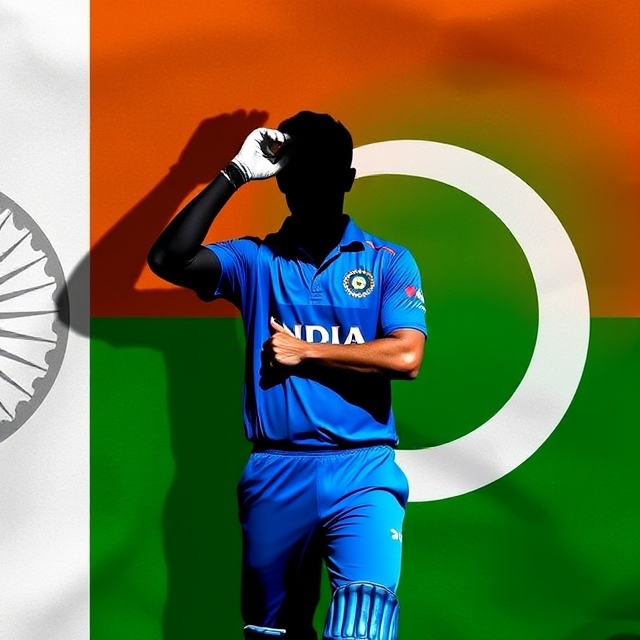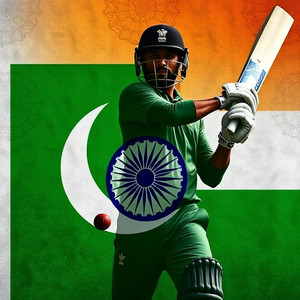
BCCI’s Role in Security and Foreign Policy: The BCCI’s strict stance on security concerns aligns with India’s national interest, reflecting the blending of sports governance and political strategy.
BJP’s Political Strategy: The BJP uses cricket decisions, like withdrawing from the Champions Trophy, to bolster nationalist sentiments and maintain a tough stance on Pakistan.
Geopolitical Impact: India’s decision could marginalize Pakistan in international cricket and potentially lead to the tournament’s relocation, affecting Pakistan’s economy and cricketing reputation.
Integrity Concerns: Issues like match-fixing and betting reinforce India’s hesitation, highlighting governance and sports integrity challenges in Pakistan
India’s recent move of not agreeing to play the Champions Trophy 2025 in Pakistan has not only cricketing dynamics but also potential geopolitical implications. The position of the BCCI, the strategic positioning of the Indian government, and the political climate within India with a focus on the current ruling party, the BJP., besides, issues of security, betting, and match-fixing add to this already messed up situation.
The Role of the BCCI
The BCCI apart from being the most important cricket controlling authority in India is also one of the strongest cricket boards in the world. It is important to say that under the leadership of the BCCI President Roger Binny and Secretary Jay Shah, the association has presented quite strict positions on the security issues of traveling to Pakistan. Shah has over the years been very keen to point out that India particularly requires assurance that there is an adequate security mechanism in which Pakistan will have to provide for the Indians to participate. This position reflects a dual commitment: player protection and the resolution of other conflicts arising from the global political climate.
Jay Shah became a prominent figure in the management of the Indian cricket team, he is also involved with forging the relationships India has with other countries through sports. In essence, this can be argued by the BCCI to possibly pull out of the tournament in case certain conditions are provided that shows that it has started aligning itself with the national interest. This approach demonstrates how the governance of sports can be aligned with the political tendencies that strengthen India’s overall foreign policy strategy.
Position of the Indian Government
The current administration in India under Prime Minister Narendra Modi and BJP has publicly backed the BCCI here. The BJP has in the past carried a hostile attitude towards Pakistan, especially bearing in mind the existing tensions concerning terrorism and borders. This kind of support for the BCCI confirms the idea that involvement in international events in Pakistan is not only about sporting applications but is about the state’s security and dignity.
This coziness between the BCCI and the government proves the political use of sports as a continuation of foreign policy. India gives quite a signal of non-willingness to play against Pakistan in the present situation when they have declined to participate in the Champions Trophy. This decision will align with the nationalistic and political discourses that consider the sport of cricket very close to the heart of India.
Political Dynamics within the BJP
Relationships between India and Pakistan about cricket have received considerable attention from the BJP’s political stand on the same. The party has successfully taken the nationalism card to rally its supporters; especially when it uses cricket to build its anti-external threats narrative. The absence from the Champions Trophy is also in line with this political strategy so that the BJP makes some right noises and looks decisive and patriotic.
Furthermore, any decision that may be thought of as a threat to national security may cause reactions of citizens. Consequently, it is politically expedient for the BJP to sustain a hostile policy towards Pakistan, notwithstanding the historical enmity that defines the India-Pakistan dyad. Most of the time the party uses nationalist sentiments and security concerns as a rationale to pull out from events organized by Pakistan.
Geopolitical Context
It also now must be considered that the consequences of India’s stubbornness do not restrict themselves within the sporting sphere. Previously, sports have been used to promote favorable relations between countries; in this case, it showcases hostility. Such a decision could result in further marginalization of Pakistan in international forums of sports and can spur other countries to follow the ‘security dynamics’ policy.

In addition, when India does not participate, consideration to transfer the tournament is under discussion. Other options that exist could be South Africa or any other country which will reduce Pakistan’s position as a host country and greatly affect its economic status as a cricketing nation.
Concerns over Match fixing and Betting
A final self-assembly dimension relates mainly to issues regarding betting and match-fixing linked to cricket matches played in Pakistan. The BCCI has been quite responsive to these concerns locally but meeting with complications outside its shores due to the kind of frameworks possibly less stringent. The fear is that matches played under possibly suspect circumstances could sully the reputation of cricket.

Such worries are compounded by prior experiences of corruption in cricket, hence the rising concern over international cricket series featuring teams from nations that may not have very high levels of governance presently when it comes to sports integrity.
India needs to stop participating in tournaments conducted in such an environment to avoid negative signals that soared its reputation besides wiping out any practices considered to deny athletic fairness.
Conclusion
But a few decisions, especially this decision to pull out of the Champions Trophy 2025 are in tandem with geopolitical clash and domestic political strategies of India. The BCCI administration follows suitable measures to avoid player risks, and at the same time, it supports governmental action to ignore sporting events in the name of national security. The BJP has added to this mix by merging politics with sports through the nationalist agenda which corroborates the public opinion against indulging with Pakistan.
As discussions on the possible, albeit uncertain, shifting of the venue for the tournament and on the questionable credibility of the matches run their course, one sees that cricket is inextricably linked to Indian polity and International Relations. Consequences of this decision would have probable acoustics for years following 2025, especially concerning successive sporting interpreted engagements between these neighboring nations as well as the overarching dynamics of cricket diplomacy for the subsequent years.
References:
- There’s Geopolitics’: ECB’s Jaw-Dropping Take On India Not Visiting Pakistan For Champions
Trophy-https://www.republicworld.com/sports/cricket/there-is-geopolitics-ecb-jaw-dropping-take-on-india-not-visiting-pakistan-for-champions-trophy - Champions Trophy without India not an option, contingencies available: top ECB officials-https://www.deccanherald.com/sports/cricket/champions-trophy-without-india-not-an-option-contingencies-available-top-ecb-officials-3234972
- ‘BCCI Went Crying To ICC’ – Rashid Latif’s Unnecessary Attack On Indian Cricket Board Over Champions Trophy-https://news24online.com/sports/bcci-went-crying-to-icc-rashid-latifs-unnecessary-attack-on-indian-cricket-board-over-champions-trophy/384114/
Parag Gilada is a Mukherjee Fellow who has recently graduated from the Jindal School of International Affairs with a keen interest in Sports Diplomacy. Views expressed are the author’s own.
